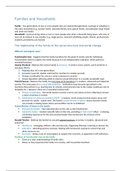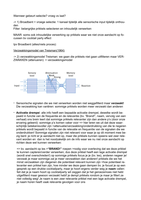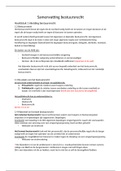Samenvatting
Summary AQA A-Level Sociology Families and Households (Paper 2)
- Vak
- Instelling
These notes explore Families and Households, which is one of the topics that appears in AQA A Level Sociology Paper 2 (worth 40 marks: 50% of Paper 2). They have been structured with the help of the actual exam specification provided by AQA, ensuring that everything has been covered. Other topics a...
[Meer zien]






